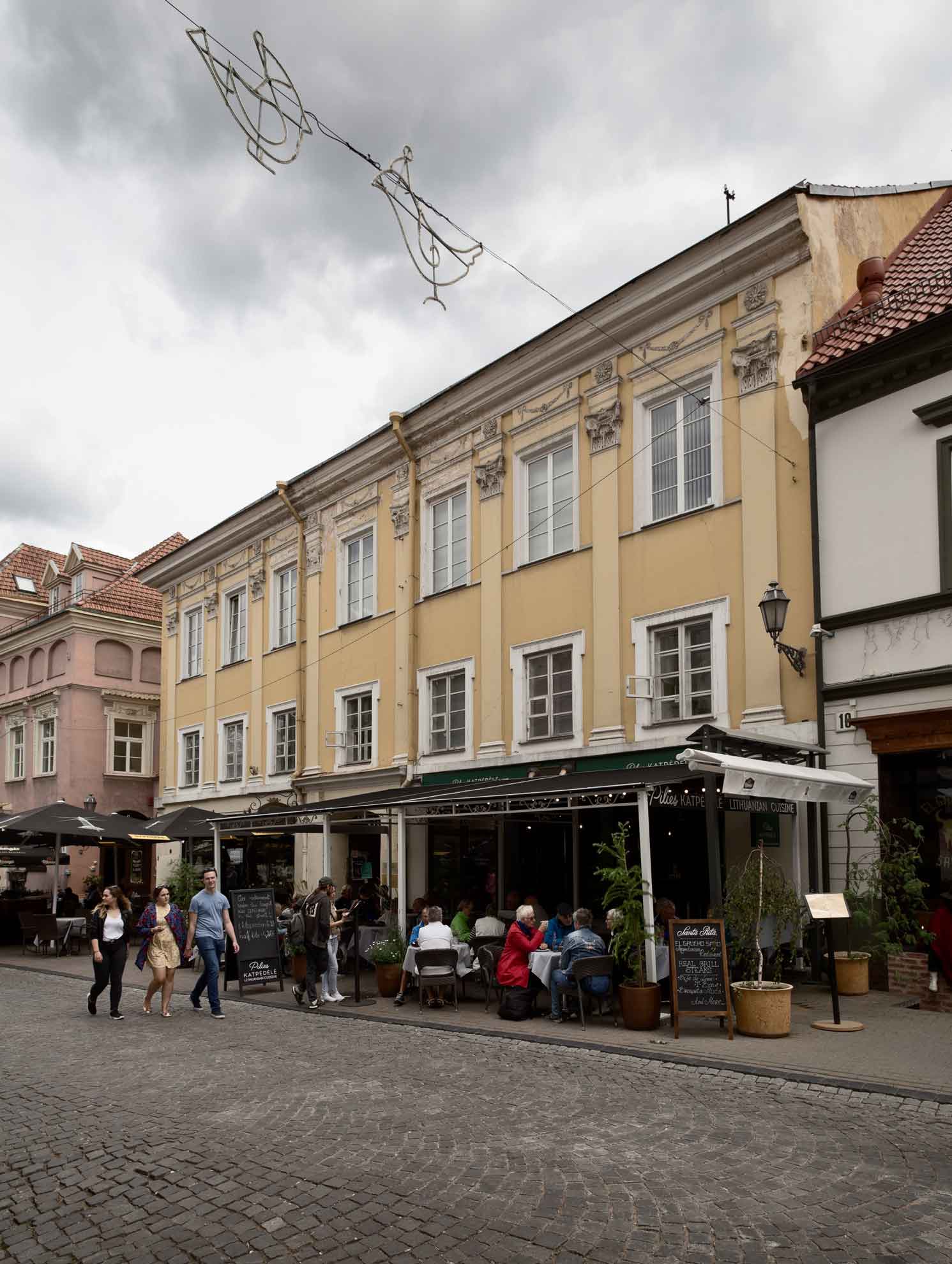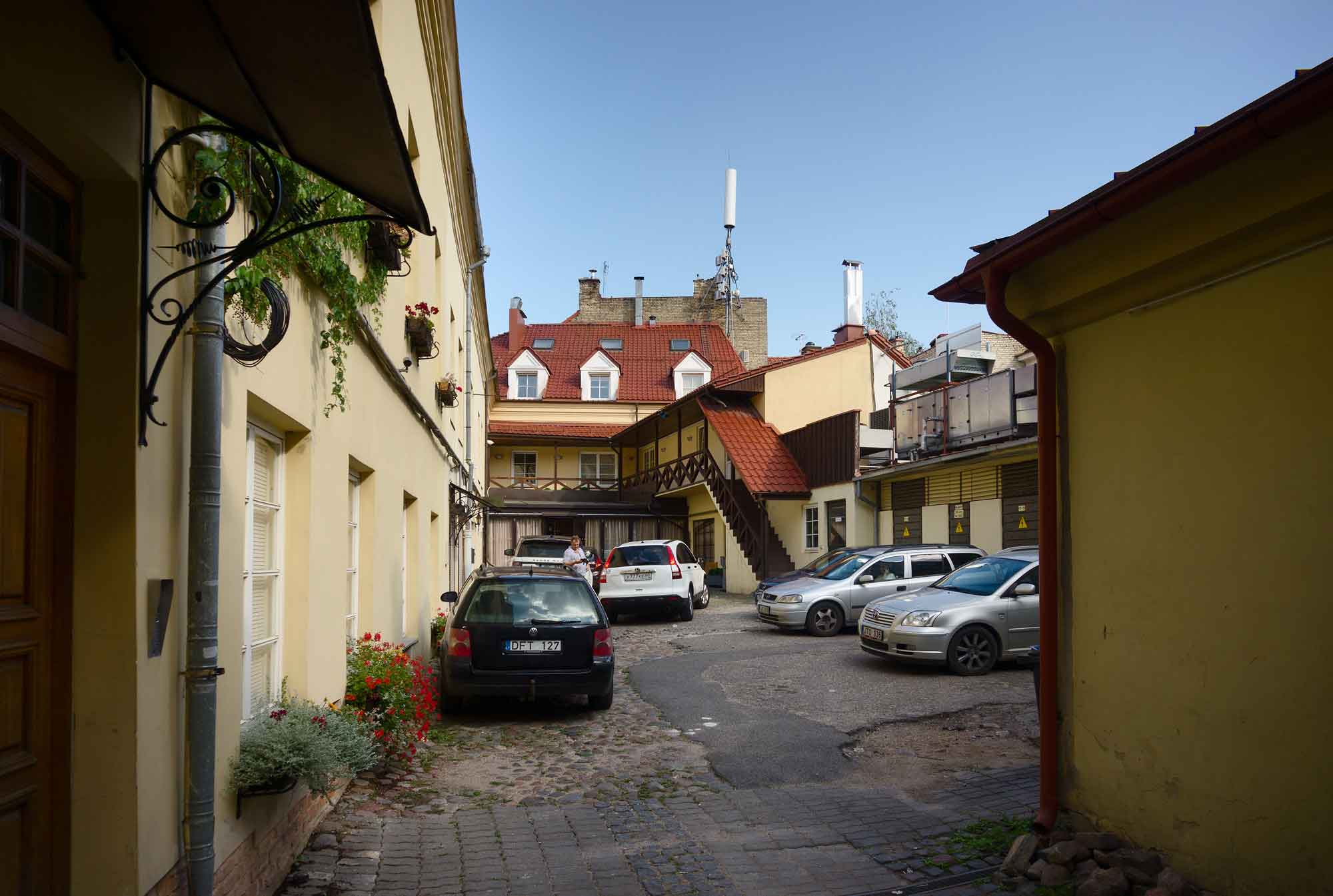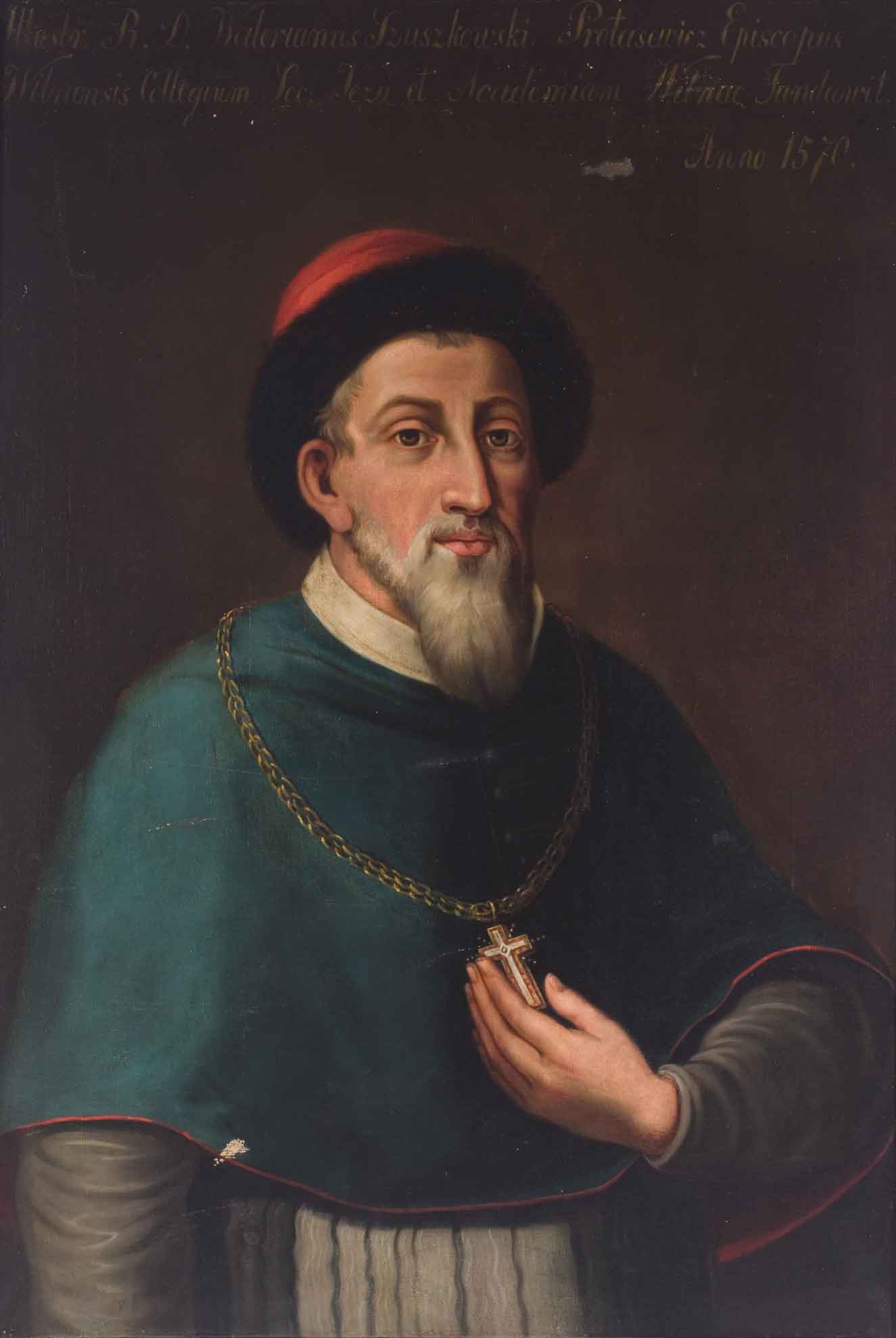8 Pilies Street

Photographer – Tomas Kapočius
8 Pilies Street. 2018
Lithuanian Art Museum
The building belonged to the Vilnius Cathedral Chapter from the 16th century. In 1575 it was bought by Bishop Valerijonas Protasevičius, who allocated part of it to be used as a dormitory for students attending the Vilnius Jesuit College. It became known as Valerijonas’ Bursa. After its reconstruction in 1800, the building acquired a Classicist facade. At the beginning of the 19th century, it housed a confectionery store and bakery, and a tavern, and from 1837 the Roman Catholic Religious Consistory was established at this address, along with the chancellery and archive of the Vilnius diocese, where some of the rooms were leased to the printer Józef Zawadzki who also briefly ran a book-store there. Bishops lived at this address from 1869. In 1918 the Vilnius bishop Jurgis Matulaitis stayed there. The Bolsheviks who had taken hold of Vilnius tried to forcibly move him out in the spring of 1919, yet the faithful had gathered to stand in his defence. That same year, the papal nuncio in Poland and apostolic visitor of the Vatican to Lithuania, Achille Ratti, visited Matulaitis as a personal guest. In 1922 Ratti was elected Pope Pius XI. A bread store and pancake house operated on the ground floor from 1952.

Photographer – Tomas Kapočius
8 Pilies Street courtyard. 2018
Lithuanian Art Museum
Individuals

Unknown artist
Bishop Valerijonas Protasevičius (1504–1579). 18th century.
Oil on canvas
Lithuanian Art Museum
VALERIJONAS PROTASEVIČIUS (~ 1504–1579)
A bishop of Vilnius, also, a notary and secretary to Queen Bona Sforza. Later on, he became the secretary of the Ruthenian chancellery of the Grand Duke of Lithuania and King of Poland Sigismund Augustus in Vilnius. In around 1533, he was appointed the canon of the Samogitian Chapter and served as priest in Kražiai. In 1537 he became the Vilnius Chapter canon, and in around 1544–1545 he was the dean to the Vilnius prelate. From 1549 he was the bishop of Lutsk, and from 1556, he was elected as the bishop of Vilnius. He was an active opponent of Protestantism. Protasevičius was very involved in education in Lithuania: in 1569 he invited the Jesuits to Vilnius, and founded a college, which the Jesuits ran (it opened in 1570). The house at 8 Pilies Street he acquired in 1575 became a dormitory for the poorer students at the college, which became known as Valerijonas’ Bursa. In 1579 he negotiated privileges from the King of Poland and Grand Duke of Lithuania Stephen Bathory and Pope Gregory XIII which allowed reorganising the college into Vilnius University.
JURGIS MATULAITIS (1871–1927)
A Catholic archbishop, declared Blessed in 1987. One of the first to spread Catholic social education in Lithuania and Poland. He studied at the priests seminaries in Kielce and Warsaw, and theology at the Imperial Roman Catholic Theological Academy in Saint Petersburg, later at Fribourg (Switzerland). He was ordained as a priest in 1899, serving in Poland and becoming involved in social activities (he founded shelters and helped the poor). He reinstated and reorganised the Marian Order, founding Marian monasteries in Warsaw and Marijampolė. He received his episcopal consecration in 1918 in Kaunas and was appointed Bishop Emeritus of Vilnius. In 1918–1925, he lived at 8 Pilies Street. He was promoted to archbishop in 1925 and appointed the episcopal visitor to Lithuania. He maintained national and linguistic neutrality during this complicated historical period.

